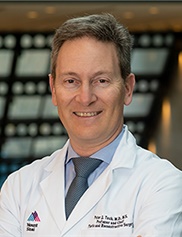Grants We Funded
Grant applicants for the 2024 cycle requested a total of nearly $3 million dollars. The PSF Study Section Subcommittees of Basic & Translational Research and Clinical Research evaluated more than 100 grant applications on the following topics:

The PSF awarded research grants totaling over $650,000 dollars to support more than 20 plastic surgery research proposals.
ASPS/PSF leadership is committed to continuing to provide high levels of investigator-initiated research support to ensure that plastic surgeons have the needed research resources to be pioneers and innovators in advancing the practice of medicine.
Research Abstracts
Search The PSF database to have easy access to full-text grant abstracts from past PSF-funded research projects 2003 to present. All abstracts are the work of the Principal Investigators and were retrieved from their PSF grant applications. Several different filters may be applied to locate abstracts specific to a particular focus area or PSF funding mechanism.
Injectable Cellulosic Hydrogels
Peter Taub MD
2015
Icahn School of Medicine at Mount Sinai
National Endowment for Plastic Surgery Grant
General Reconstructive, Technology Based
There are many indications for the use of fillers for volumetric augmentation, including the correction of localized tissue atrophy due to trauma, tumor removal, or infectious processes, such as HIV, congenital craniofacial anomalies, burns, and hemifacial atrophy. A variety of materials have been used for these purposes, including hyaluronic acid, collagen, silicone, and fat, however, they have many limitations including cost, safety, efficacy, and duration of effect. Therefore, there is a need for new safe and effective fillers that maximize patient benefit while minimizing deleterious tissue effects. Methylcellulose is a derivative of cellulose, a naturally occurring polysaccharide obtained from wood pulp and cotton, that forms a clear, viscous polymer solution in an aqueous environment. It is biocompatible, inexpensive, and FDA approved. Previously, methylcellulose modified with functional methacrylate groups was shown to form covalently-crosslinked hydrogels in the presence of a photoinitiator and exposure to UV light. These photocrosslinked gels exhibited tunable properties (i.e., stiffness and swelling) that can be tailored to match those of subcutaneous fat tissue, and displayed long-term stability in vivo. However, photopolymerization is not amenable to minimally-invasive injection, which is most desirable for soft tissue reconstruction in the clinical setting. Methacrylated methylcellulose may undergo free-radical polymerization in the presence of redox initiators in solution (as opposed to photoinitiators requiring exposure to UV light), thus allowing for direct injection and in situ gelation. In addition, since methylcellulose is degraded by cellulase, an enzyme not found in humans, redox-crosslinked methylcellulose hydrogels are ideal candidates for stable, permanent filler materials. The use of cellulase treatment for corrective management as a result of migration or adverse reactions provides another distinct advantage over existing reconstructive materials. The experimental design will incorporate long-term in vivo studies to assess the safety and efficacy of injectable, redox-polymerized methylcellulose hydrogels (Aim 1), as well as selective removal and reversibility via enzymatic treatment (Aim 2). The work will be performed by an interdisciplinary research team from the Division of Plastic and Reconstructive Surgery at the Mount Sinai Medical Center and the Department of Biomedical Engineering at the City College of New York.
 Peter J. Taub, M.D., F.A.C.S., F.A.A.P., is a Professor of Surgery, Pediatrics and Dentistry at the Icahn School of Medicine at Mount Sinai as well as attending plastic and reconstructive surgeon at The Mount Sinai Medical Center and Elmhurst Hospital Center. Dr. Taub is board certified in both General Surgery and Plastic and Reconstructive Surgery. After completing his training, Dr. Taub returned to New York to serve as the Chief of the Craniofacial and Pediatric Plastic Surgery service at New York Medical College and the Maria Fareri Children’s Hospital as well as the Director of the Westchester Craniofacial Center. In addition, he is an active member of the Mount Sinai Cleft and Craniofacial Center and the national professional societies ASPS, ACPA, PSRC, ASMS, and NYAM.
Peter J. Taub, M.D., F.A.C.S., F.A.A.P., is a Professor of Surgery, Pediatrics and Dentistry at the Icahn School of Medicine at Mount Sinai as well as attending plastic and reconstructive surgeon at The Mount Sinai Medical Center and Elmhurst Hospital Center. Dr. Taub is board certified in both General Surgery and Plastic and Reconstructive Surgery. After completing his training, Dr. Taub returned to New York to serve as the Chief of the Craniofacial and Pediatric Plastic Surgery service at New York Medical College and the Maria Fareri Children’s Hospital as well as the Director of the Westchester Craniofacial Center. In addition, he is an active member of the Mount Sinai Cleft and Craniofacial Center and the national professional societies ASPS, ACPA, PSRC, ASMS, and NYAM.